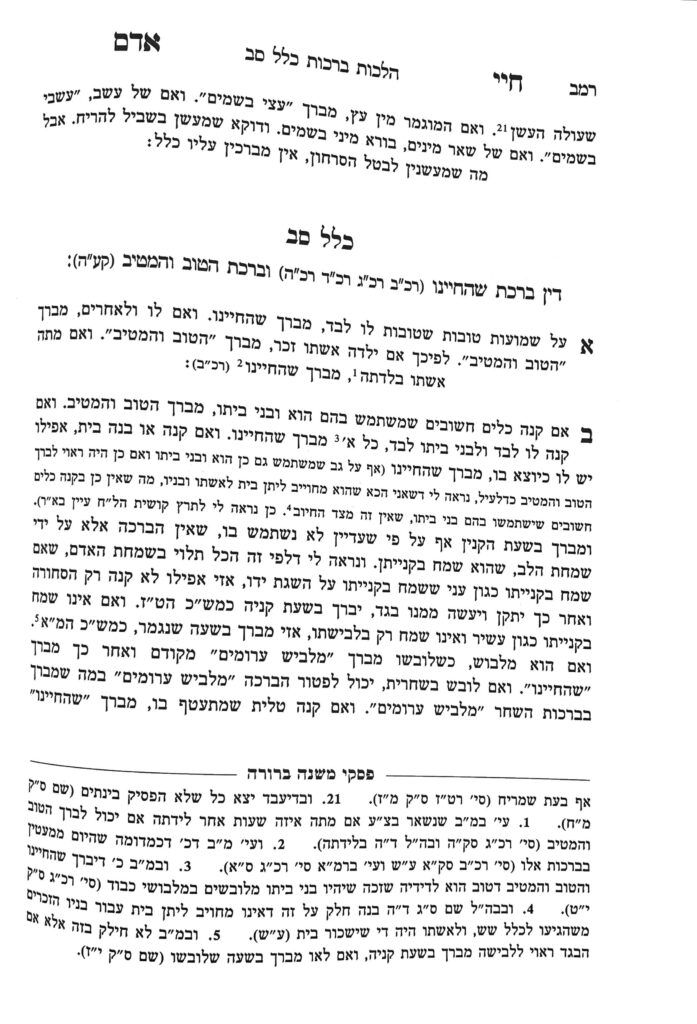We are beginning siman 1. The Chayei Adam writes that one recites the bracha shehecheyanu on good tidings which are relevant only to oneself. If the good tidings are relevant to oneself and to others, one makes the bracha hatov vehameitiv.
The Chayei Adam gives an example. If one hears that their wife gave birth to a baby boy, they recite the bracha hatov vehameitiv. Chazal teach us that a baby boy is beneficial to multiple people, due to the mitzvos which come with a boy, the parnassa associated with a boy which can help the parents in their old age, and the family legacy which is continued on, among other reasons. Therefore, since the boy is beneficial both to the father and the mother, one recites the bracha of hatov vehametiv.
If one’s wife dies in childbirth, chas veshalom, since the father is no longer sharing the benefit, he recites shehecheyanu.
The Mishnah Berurah discusses a situation in which the wife survived for a small period of time after childbirth, but died before the husband had a chance to make the bracha. The Mishnah Berurah does not pasken on the question.
We can learn from the Chayei Adam and Mishnah Berurah an important mussar thought. Chazal expected a person to be able to thank Hashem for the good–the child–even at a time of sorrow.
In siman 2, the Chayei Adam discusses buying new items. If one purchases a new item which is of benefit to themselves and to others, they recite the bracha of hatov vehametiv. Examples would include a new refrigerator, oven or family car.
If one purchases an item for themselves, and another item for their family members, each individual recites their own shehechiyanu. An example would include new clothing purchased for each member of the family.
The Mishnah Berurah disagrees with the last point. The Mishnah Berurah agrees that the new clothing for the father only benefit himself, and therefore requires a shehecheyanu. However, the clothing bought for other members of the family are beneficial to the father as well, because the father derives benefit from seeing his children in new clothing and being able to discharge his fatherly duties.
Therefore, the Mishnah Berurah holds that the father should make a hatov vehametiv on the children’s clothing, and they should answer amen. By answering amen they fulfil their own obligation to make a bracha, because the bracha of shehecheyanu is subsumed under the bracha of hatov vehametiv.
Summary
Shehecheyanu is recited when only an individual benefits from the good in question; hatov vehametiv is recited when multiple people benefit from the good.
Therefore, if one gives birth to a baby boy, they recite hatov vehametiv, because both parents benefit. If the mother dies in childbirth, chas veshalom, the father recites shehecheyanu
Similarly, if one purchases new items which only benefit themselves, they recite shehecheyanu. If the items benefit the entire family, one recites hatov vehametiv.
The Mishnah Berurah holds that if one purchases items to benefit individual family members, such as new clothing, the father receives benefit from the new item as well. Therefore, the father should recite hatov vehametiv, and the child should answer amen. (The child’s chiyuv to recite shehecheyanu will be subsumed under the father’s bracha.)



